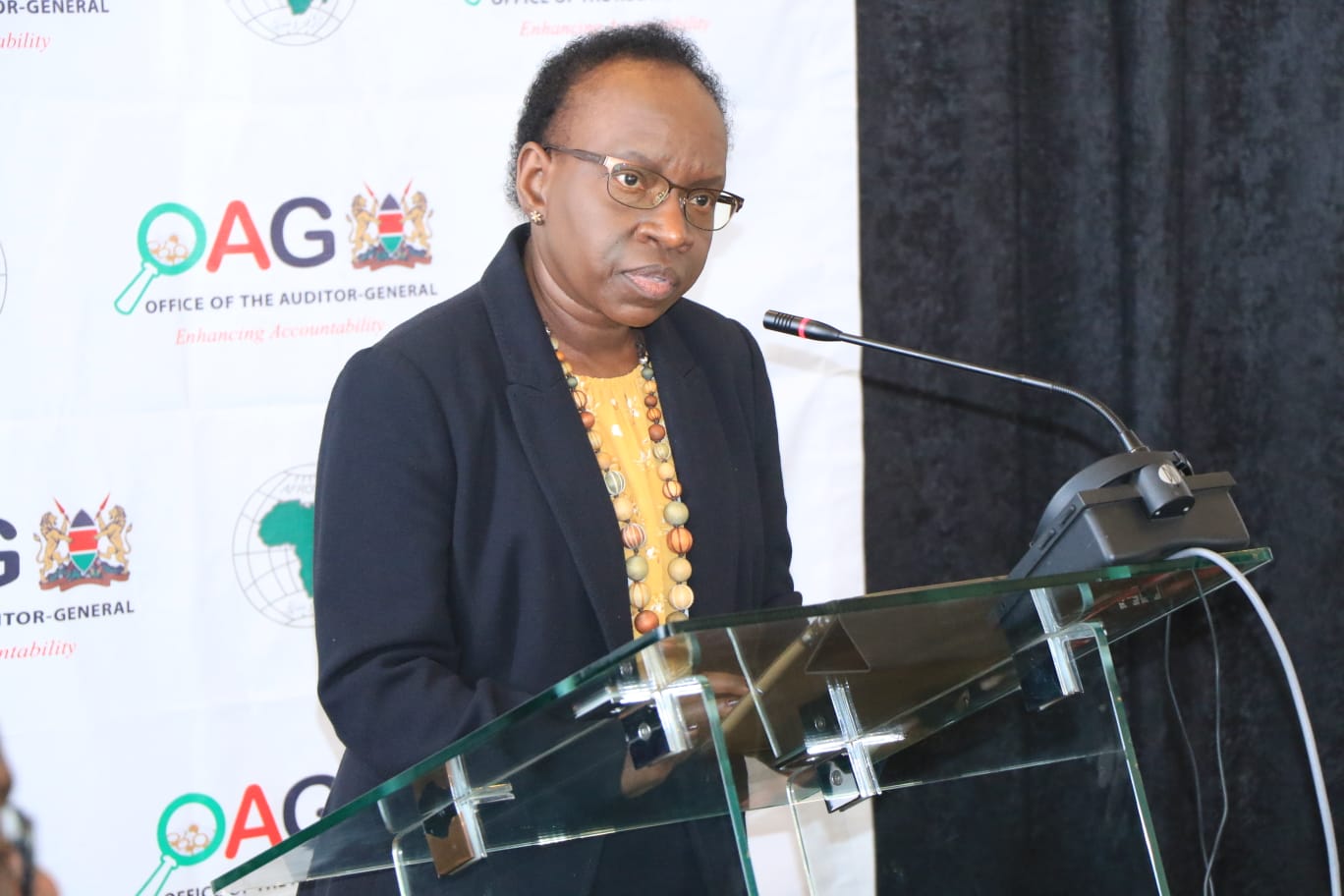Auditor General: Counties should have one to 10 bank accounts, not over 200

Gathungu emphasised that the current practice of maintaining up to 300 bank accounts per county is impractical and detrimental.
Auditor General has called for the reduction of the number of bank accounts managed by county governments, proposing a limit of between one to 10 accounts per county.
The recommendation comes in response to growing concerns over financial mismanagement and inefficiencies within the 47 county governments.
More To Read
- Counties exposed as Auditor General flags major in emergency preparedness
- Senate committee approves Bill protecting governors from early impeachment
- State agencies, counties owe Kenya Power Sh4.67 billion in unpaid bills - Auditor General
- Top schools flagged for illegal fees and uniform procurement in Auditor General’s report
- Parliament seeks Controller of Budget control of Sh63 billion Housing Levy to curb misuse
- Auditor General calls for penalties on officers who ignore audit recommendations
Appearing before a Senate committee on Wednesday, Gathungu emphasised that the current practice of maintaining up to 300 bank accounts per county is impractical and detrimental.
“Having 200 to 300 accounts doesn’t make sense. Such a high number of accounts can lead to confusion and misallocation of funds, complicating financial oversight and accountability,” Gathungu said.
Her remarks follow concerns raised by Controller of Budget Margaret Nyakang'o, who in an audit reported that counties had opened over 600 new accounts between June 2023 and January 2024.
Nyakang'o's report revealed that counties managed a total of 2,000 commercial bank accounts during the initial nine months of the 2023/2024 financial year. She highlighted that the proliferation of the accounts raises questions about their necessity and purpose.
In the report, Bungoma County led with 352 commercial bank accounts, followed by Baringo with 304, Migori with 208, and Nyandarua with 86. Each of the counties was noted for operating multiple accounts for various purposes, including vocational training, health facilities, and local revenue.
The report also exposed that some counties failed to disclose the number of accounts they manage, further complicating efforts to monitor financial activities.
Gathungu explained that the law allows counties to open as many accounts as they want, but this can lead to duplication and misuse of funds.
She pointed out that the extensive number of accounts has resulted in issues in that money designated for specific purposes is improperly used for other expenditures.
“There are often reallocations from one account to another, and this can obscure the true allocation of funds,” she said.
The law mandates that county government bank accounts be held at the Central Bank of Kenya (CBK) to ensure proper tracking, with exceptions only for imprest, petty cash, and revenue collection accounts.
In her report, Nyakango indicated that the current trend of managing numerous accounts in commercial banks complicates the monitoring and tracking of public expenditure.
“The growing number of bank accounts has made it more challenging for the Controller of Budget’s office to track how public money is spent,” she noted.
Nyakang'o further urged county officials to ensure compliance with financial regulations by maintaining accounts at CBK.
“County Executive Committee Members should be responsible and ensure compliance with the law to facilitate accountable spending,” Nyakang'o said.
Top Stories Today












































